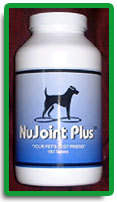QuestionI was wondering if it was safe to give tylenol to a dog. Ours is in quite a bit of pain from an accident and I was told from a friend I could give it tylenol. Then some one told me that it was not safe for a dog. Could you let me know and if it is not safe, what can it do to my dog
Thankyou in advance.
AnswerDear Brian -
There are various responses for giving your dog human Tylenol. You can give a dog human Tylenol but I would not recommend it. Animals have different reactions to human medications which can sometimes prove fatal. The only over the counter human medication I would recommend giving a pet is Benadryl for something like a bee sting allergy. Your friend may have had good results with giving their pet human Tylenol but I wouldn't want you to be upset if your pet did not respond the same way. I will get into a little more detail later in my response.
Without knowing exactly what or how the injury your pet has suffered I will give you some basic natural remedies for minor injuries.
Obviously in the case of minor pains from known injuries, we will often treat our pets on our own, just as we do our children or ourselves. If your dog is suffering from "weekend warrior" syndrome after a long hike, or has had a minor injury, there are a number of simple home remedies you can try.
Just as with humans, ice should be the first treatment for a soft tissue injury or swelling. I have found that the homeopathic remedy arnica is also incredibly helpful with muscle strain, swollen soft tissues, or bruising. (This is not to be confused with the herbal remedy arnica; while they are the same herb; they are prepared completely differently. Be sure to obtain homeopathic arnica, usually from a health food store.) For a mild injury in a dog, you can give the arnica in one of two ways. You can put a single pellet into the mouth of the pet and make sure they swallow it. The pellets are very tiny and slightly sweet, so most pets will swallow them willingly.
If the pet won't take the pellet, simply put it into four ounces of water and stir about ten times with a clean teaspoon, then give half a teaspoon of the liquid to the pet. It does not matter that the pellet will not have dissolved. For minor muscular injuries, one or two doses are usually sufficient. This dosage is appropriate for dogs or cats of all sizes.
Herbal medicine has, of course, been dealing with pain for millennia. The single most common herb used for minor pain is Willow bark, Salix alba. This herb, the precursor to modern aspirin, may be easier on the stomach than aspirin, or even the supposedly GI-friendly new generation COX-2 inhibitors. If you do give aspirin to your dog, make sure it is Ascriptin or a form of aspirin formulated for dogs. Never give aspirin, willow bark, or any other pain medication to a cat; only give pain medication that your veterinarian or herbalist recommends. Cats metabolize these drugs differently than dogs or humans.
What about drugs such as Rimadyl, Deramaxx, and other non-steroidal anti-inflammatories (NSAIDs) for minor pain and injuries? Given the listed side effects of this class of drugs, which in the case of Rimadyl includes death, I feel their use for minor pain is not worth the possible heart ache in the long run. Certainly these drugs have their place, but there are alternatives that can be explored before bringing out the big guns. Scientists are still researching these drugs because of their terrible side effects.
If you are concerned with arthritis or other chronic pain syndromes, let me know and I will email you some more information.
Best wishes and I hope this information has helped you and your pet. If you have any other questions please feel free to contact me.
If you would like information on natural medicine and herbal remedies for human and animal concerns; please contact me at wintersaurora@yahoo.com and I will be happy to send you my catalog.
Sincerely,
Sharon Hubbs, AHG
Certified Natural Health Consultant & Herbalist
Thank you and best wishes to you and your pet.

 Bulging cervical disc nujoint plus; supplements for disc pain ;
QuestionMy 60 lb, Shepherd-Chow mix is 11 years old. Th
Bulging cervical disc nujoint plus; supplements for disc pain ;
QuestionMy 60 lb, Shepherd-Chow mix is 11 years old. Th
 mixed breed losing hair/itching
Question
Anna before she starte
I adopted a mix breed l
mixed breed losing hair/itching
Question
Anna before she starte
I adopted a mix breed l
 ligament injury canine options; ACL alternatives ;
QuestionMy 4-year-old American Bulldog was just diagnos
ligament injury canine options; ACL alternatives ;
QuestionMy 4-year-old American Bulldog was just diagnos
 French bulldog does great with Probiotics and the NuVET!!!
QuestionHello I wrote you before concering my french bu
French bulldog does great with Probiotics and the NuVET!!!
QuestionHello I wrote you before concering my french bu
 Blue-eyed Boston; Boston Terrier Experts;
Question
Babys Got Blue Eyes
My family recently acquire
Blue-eyed Boston; Boston Terrier Experts;
Question
Babys Got Blue Eyes
My family recently acquire